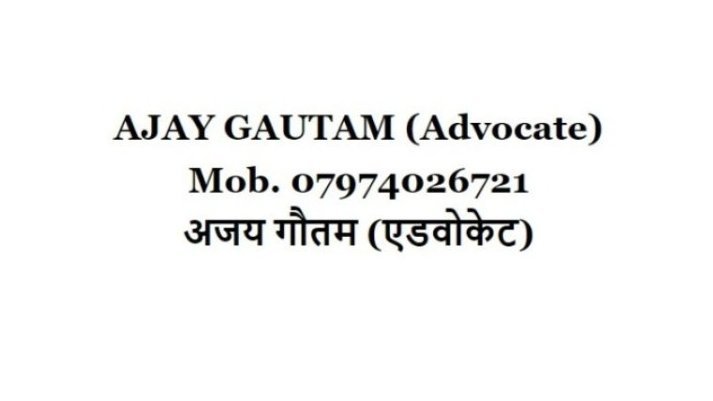DRT Case Status: Diary Number / Case Number / Party Name / Advocate Name
To check the status of a DRT (Debt Recovery Tribunal) case, you can use the e-DRT portal, a part of the Indian government’s online services.
How to check DRT case status
- Access the e-DRT portal. Visit the official DRT website at drt.gov.in and navigate to the e-filing or case status section, or go directly to the e-DRT portal.
- DRT Case Status: Diary Number / Case Number / Party Name
- Select your search method. You can typically look up a case in one of several ways:
- Case Number: Search using the case number and year.
- Party Name: Search for cases by entering the petitioner’s or respondent’s name. You will also need to specify the DRT bench and case year.
- Advocate Name: If you know the name of the lawyer involved, you can search for cases by the advocate’s name, their Bar Council number, and the case year.
- Enter the required details. Based on your chosen search method, enter the specific information, such as the case number, year, party name, or advocate name.
- Complete the security check. Enter the CAPTCHA code displayed on the screen to proceed.
- View the case history. Click the “Go” or “View” button to see the case history, including past and upcoming hearing dates, interim orders, and final orders.
- Cause Lists: The e-DRT portal also publishes daily cause lists, which detail the cases scheduled for hearing on a specific day. You can find these lists on the tribunal’s website.
List of all DRTs in india | List of all DRATs in india
DRT full form: DRT stands for Debt Recovery Tribunal. It is a specialized quasi-judicial body established under the Recovery of Debts Due to Banks and Financial Institutions Act, 1993, to provide speedy adjudication and recovery of debts due to banks and financial institutions in India.
DRAT full form: DRAT stands for Debt Recovery Appellate Tribunal. It is an appellate authority where parties aggrieved by the decisions of the Debt Recovery Tribunal (DRT) can file appeals. DRAT was established under the Recovery of Debts and Bankruptcy Act, 1993 to provide speedy adjudication and recovery of debts due to banks and financial institutions.
SARFAESI full form: SARFAESI stands for “Securitisation and Reconstruction of Financial Assets and Enforcement of Security Interest Act”. It is an Indian law enacted in 2002 to empower banks and financial institutions to recover non-performing assets (NPAs) by enforcing security interests without court intervention. The act allows lenders to take possession of secured assets like residential or commercial properties and auction them to recover defaulted loans, thus facilitating faster and more efficient loan recovery and reducing NPAs in the financial system.
NPA full form: NPA stands for Non-Performing Asset. It is a loan or advance given by a bank or financial institution on which the borrower has defaulted in making principal or interest payments for a specified period, typically 90 days or more. When a loan stops generating income for the lender because repayment is overdue beyond this period, it is classified as an NPA. This classification indicates that the asset has become non-performing and is not yielding any returns for the bank.
The DRTs are located in various cities across the country, including but not limited to:
- Ahmedabad: DRT-I and DRT-II
- Allahabad:
- Bengaluru: DRT-I and DRT-II
- Chennai: DRT-1, DRT-2, and DRT-3
- Chandigarh:
- Coimbatore:
- Cuttack:
- Dehradun:
- Delhi: DRT-I, DRT-II, and DRT-III
- Ernakulam: DRT-I and DRT-II
- Guwahati:
- Hyderabad: DRT-I and DRT-II
- Jabalpur:
- Jaipur:
- Kolkata: DRT-I, DRT-II, and DRT-III
- Lucknow:
- Madurai:
- Mumbai: DRT-I, DRT-II, and DRT-III
- Nagpur:
- Patna:
- Pune:
- Ranchi:
- Siliguri:
- Visakhapatnam:
Debts Recovery Appellate Tribunals (DRATs): DRAT, Allahabad, DRAT, Chennai, DRAT, Delhi, DRAT, Kolkata, and DRAT, Mumbai.
DRATs in India:
DRAT Allahabad:
Handles appeals from DRTs in Allahabad, Dehradun, Jabalpur, Lucknow, Patna, and Ranchi.
DRAT Chennai:
Handles appeals from DRTs in Chennai (1, 2, 3), Bengaluru (1, 2), Coimbatore, Ernakulam (1, 2), and Madurai.
DRAT Delhi:
Handles appeals from DRTs in Delhi (1, 2, 3), Chandigarh (1, 2, 3), and Jaipur.
DRAT Kolkata:
Handles appeals from DRTs in Kolkata (1, 2, 3), Hyderabad (1, 2), Vishakhapatnam, Siliguri, Cuttack, and Guwahati.
DRAT Mumbai:
Handles appeals from DRTs in Mumbai (1, 2, 3), Ahmedabad (1, 2), Aurangabad, Nagpur, and Pune.
